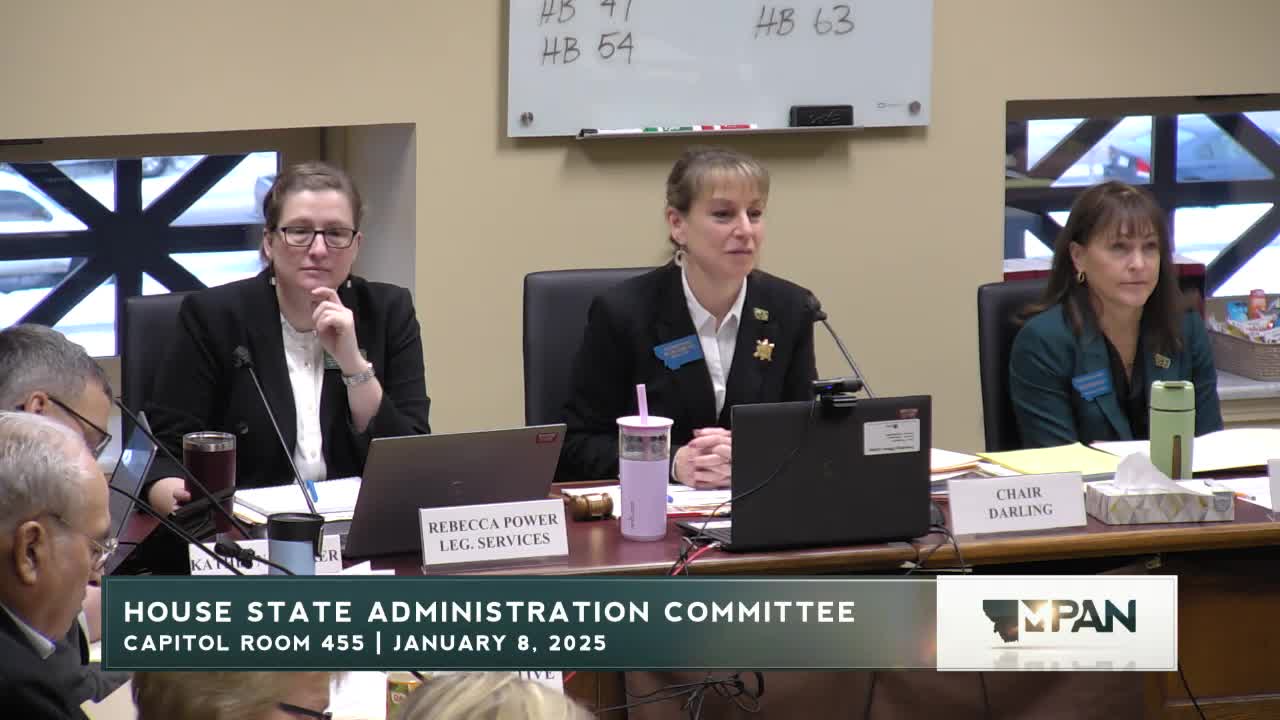Montana bill would let agencies summarily dismiss citizen rulemaking petitions outside their jurisdiction
Get AI-powered insights, summaries, and transcripts
Subscribe
Summary
Representative Neil Durham introduced House Bill 33 to let agencies summarily dismiss citizen petitions that concern matters outside the agencies' legislative rulemaking authority.
Representative Neil Durham introduced House Bill 33 to the House State Administration Committee, saying the measure would amend the citizen petition provisions of the Montana Administrative Procedure Act to allow agencies to decline petitions that do not concern matters within their statutory rule‑making authority.
The change would amend MCA 2‑4‑315 (citizen petitions for rulemaking), Representative Durham said, and was requested by the Department of Fish, Wildlife and Parks. "This bill is going to amend that to essentially say that if it's not within their purview or their jurisdiction, that they can't make a determination on it," Durham said.
Jeff Hindoyne, chief legal counsel for the Department of Fish, Wildlife and Parks, told the committee the department supports the bill as a way to quickly inform petitioners that the agency lacks authority and point them toward the correct office. "It gives the agency the ability to summarily dismiss that petition on that basis and not have to pull it any deeper into our own internal rulemaking processes," Hindoyne said. He emphasized agencies already try to provide a customer‑service response that explains whether a petition implicates statute rather than agency rulemaking authority.
Committee members pressed staff on how the dismissal process would work in practice. Representative Perry asked whether agencies would simply refer petitioners elsewhere, and Hindoyne said agencies currently provide written explanations and will continue to try to narrow petitions to the scope the agency can act on. Representative Schubert asked whether a petition that included both jurisdictional and non‑jurisdictional parts might be wholly dismissed; Hindoyne answered the intent is to allow quick dismissals for petitions that are entirely outside an agency's authority but not to foreclose processing a petition in which parts are actionable.
Representative Durham acknowledged the committee's concerns about the phrase "summarily dismiss" and said he would be open to an amendment to address that language. The sponsor closed by urging the committee to consider whether an amendment would make members more comfortable with the bill.
The hearing was closed with the committee chair asking anyone preparing an amendment to file it promptly because the committee planned executive action Friday.
Next steps: HB 33 will return to the committee for executive action if members submit amendments; no committee vote was recorded in the hearing transcript.
